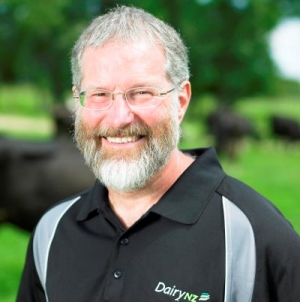DairyNZ and the Dairy Companies Association of New Zealand (DCANZ) agree blunt force should only be reserved for unforeseen emergencies where better alternatives are not immediately available.
DairyNZ strategy and investment leader for sustainability, Dr Rick Pridmore, says the changes to the code of welfare for dairy cattle, outlined by the Minister for Primary Industries, have provided clarity for farmers.
"Most dairy cattle, including calves, are generally not slaughtered on farms by farmers anyway but are sent to processing facilities.
However, the move to amend the code of welfare makes it much clearer what is an emergency and what is acceptable practice on farms when that situation does arise. Farmers need to be trained and competent – and that's an entirely reasonable expectation."
Dr Pridmore says DairyNZ is working with the ministry so training and support is available for farmers in alternative methods such as the use of a captive bolt.
"We are confident as an industry that we have the necessary resources and training programmes in place to adequately prepare farmers for this change," he says.
"We have 21 training workshops planned for June and July that will cover humane slaughter on-farm, and we are also going to partner with veterinarians to deliver more workshops in the future."
DCANZ executive director Kimberly Crewther says the change aligns with international research-based recommendations and will support New Zealand maintaining its reputation for high standards of animal welfare.
"The New Zealand dairy industry values high standards of animal welfare. Consumers and the general public can be confident that our standards are robust for the care of cattle including calves," she says.
The code of welfare for dairy cattle will be reissued with amendments covering the humane destruction of dairy cattle on farms, and will come into effect on June 13 - ahead of this year's calving season.
















